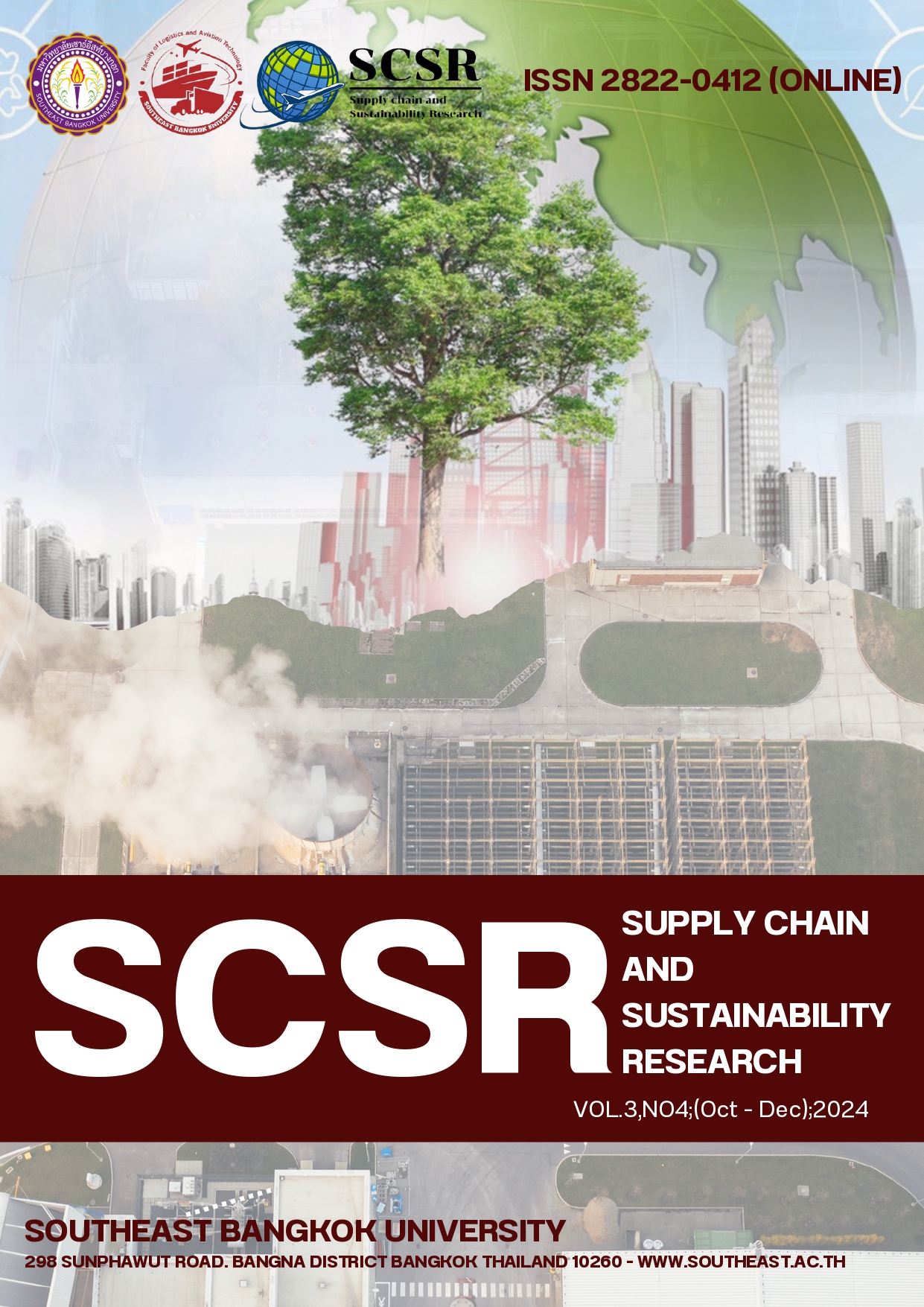System dynamics engineering cost management strategy from the perspective of supply chain management: an effective method to control the cost of construction projects
Main Article Content
บทคัดย่อ
With the rapid development of the construction industry and the increasing market competition, the effectiveness of project cost management is becoming more and more important for the economic feasibility and sustainable development of the project. The purpose of this paper is to discuss the key measures to improve the level of project cost management from the perspective of supply chain management and system dynamics and put forward the strategies for effective cost control in all stages of construction projects. Firstly, the importance of scientific budgeting and optimal design in controlling the initial project cost is emphasized, and the long-term impact of the system dynamics model is analyzed. Secondly, the cost monitoring and management of the construction phase is discussed, with a focus on schedule control, material procurement, and site management, with the aim of using a system dynamics approach to predict cost changes to avoid budget overruns. In addition, rational planning of contract management and bidding processes is also seen as a key factor in controlling costs, and system dynamics can help evaluate the effectiveness of different strategies. Finally, it is suggested to improve the professional ability of project management personnel through team building and emphasize the role of system thinking in improving the overall level of project cost management. Through the implementation of these measures, it is expected to enhance the effectiveness of project cost management, achieve effective control of project costs, and promote the sustainable development of construction projects.
Article Details

อนุญาตภายใต้เงื่อนไข Creative Commons Attribution-NonCommercial-NoDerivatives 4.0 International License.
บทความนี้ได้รับการเผยแพร่ภายใต้สัญญาอนุญาต Creative Commons Attribution-NonCommercial-NoDerivatives 4.0 International (CC BY-NC-ND 4.0) ซึ่งอนุญาตให้ผู้อื่นสามารถแชร์บทความได้โดยให้เครดิตผู้เขียนและห้ามนำไปใช้เพื่อการค้าหรือดัดแปลง หากต้องการใช้งานซ้ำในลักษณะอื่น ๆ หรือการเผยแพร่ซ้ำ จำเป็นต้องได้รับอนุญาตจากวารสารเอกสารอ้างอิง
Benton Jr, W. C. (2020). Purchasing and supply chain management. Sage Publications.
Chen, Y., Wang, X.,Liu, Z.,Cui, J.,Osmani, M.,& Demian, P. (2023). Exploring building information modeling (bim) and internet of things (iot) integration for sustainable building. Buildings, 13(2), 288.
Ford, D. N., & Lyneis, J. M. (2020). System dynamics applied to project management: A survey, assessment, and directions for future research. System Dynamics: Theory and Applications, 285-314.
Ghadge, A.,Er, M.,Ivanov, D.,& Chaudhuri, A. (2022). Visualisation of ripple effect in supply chains under long-term, simultaneous disruptions: a system dynamics approach. International Journal of Production Research, 60(20), 6173-6186.
Hanioglu, M. N. (2022). A Cost Based Approach to Project Management: Planning and Controlling Construction Project Costs. Routledge.
Harris, F., McCaffer, R.,Baldwin, A.,& Edum-Fotwe, F. (2021). Modern construction management. John Wiley & Sons
Jahan, S.,Khan, K. I. A.,Thaheem, M. J.,Ullah, F.,Alqurashi, M.,& Alsulami, B. T. (2022). Modeling profitability-influencing risk factors for construction projects: A system dynamics approach. Buildings, 12(6), 701.
Kazancoglu, Y.,Ekinci, E.,Mangla, S. K.,Sezer, M. D.,& Kayikci, Y. (2021). Performance evaluation of reverse logistics in food supply chains in a circular economy using system dynamics. Business Strategy and the Environment, 30(1), 71-91.
Katke, S. S. (2020). Time and Cost Control of Construction Project using 5D BIM process. Int. Res. J. Eng. Technol, 7, 3247-3257.
Liu, J.,Liu, Y.,& Wang, X. (2020). An environmental assessment model of construction and demolition waste based on system dynamics: a case study in Guangzhou. Environmental Science and Pollution Research, 27, 37237-37259.
Luo, L.,Jin, X.,Shen, G. Q.,Wang, Y.,Liang, X.,Li, X.,& Li, C. Z. (2020). Supply chain management for prefabricated building projects in Hong Kong. Journal of management in engineering, 36(2), 05020001.
Mannino, A., Dejaco, M. C.,& Re Cecconi, F. (2021). Building information modelling and internet of things integration for facility management—Literature review and future needs. Applied Sciences, 11(7), 3062.
Sharma, M., & Joshi, S. (2023). Digital supplier selection reinforcing supply chain quality management systems to enhance firm's performance. The TQM Journal, 35(1), 102-130.
Tezel, A., Febrero, P., Papadonikolaki, E., & Yitmen, I. (2021). Insights into blockchain implementation in construction: models for supply chain management. Journal of management in engineering, 37(4), 04021038.


